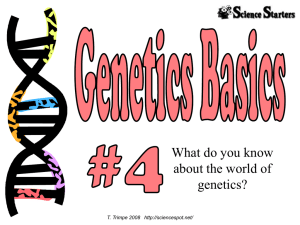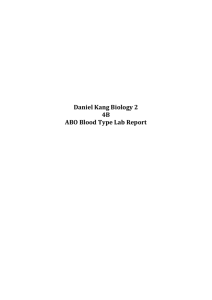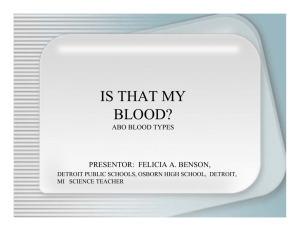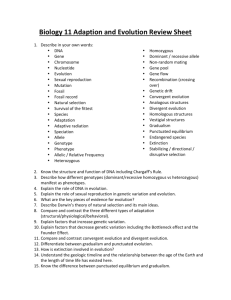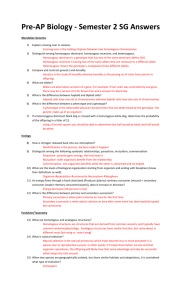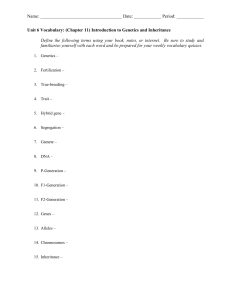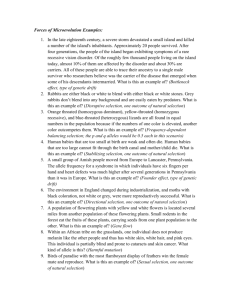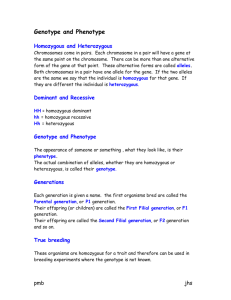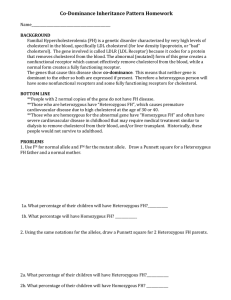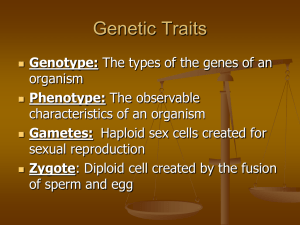Blood Typing Lab Name: Table I (Record data from plastic wells
advertisement
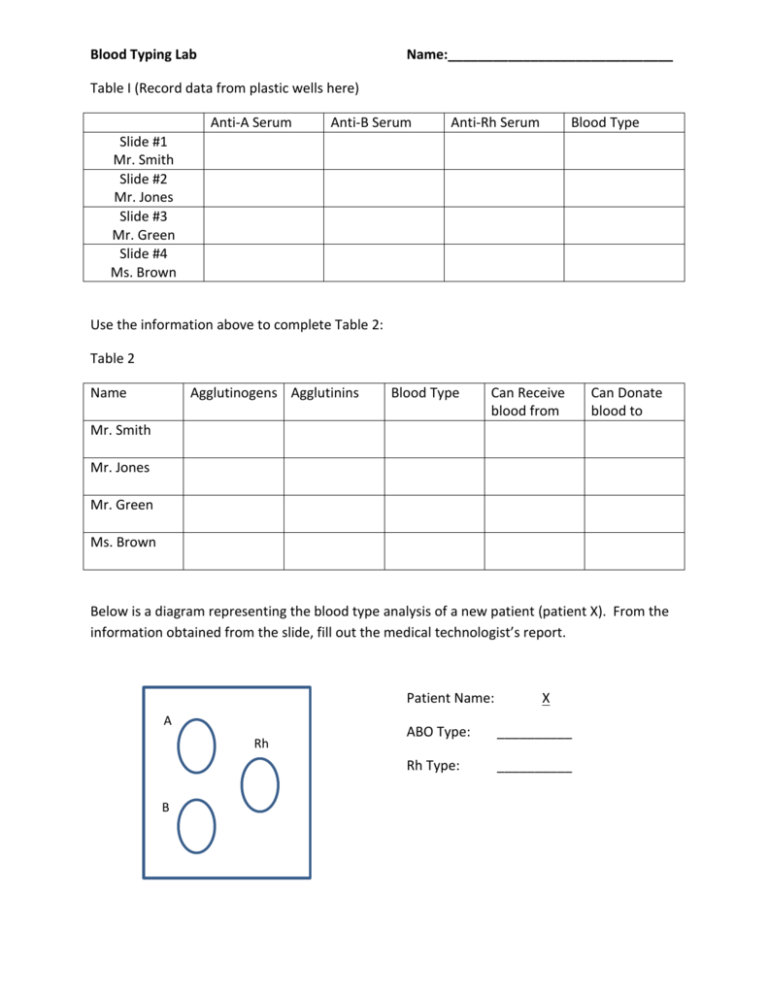
Blood Typing Lab Name:______________________________ Table I (Record data from plastic wells here) Anti-A Serum Anti-B Serum Anti-Rh Serum Blood Type Slide #1 Mr. Smith Slide #2 Mr. Jones Slide #3 Mr. Green Slide #4 Ms. Brown Use the information above to complete Table 2: Table 2 Name Agglutinogens Agglutinins Blood Type Can Receive blood from Can Donate blood to Mr. Smith Mr. Jones Mr. Green Ms. Brown Below is a diagram representing the blood type analysis of a new patient (patient X). From the information obtained from the slide, fill out the medical technologist’s report. Patient Name: A Rh B X ABO Type: __________ Rh Type: __________ The distribution of blood types around the world varies. For example, you would find it different in Japan, and among Basque people in northern Spain. Population U.S. White U.S. Black Native Americans A 39.7% 26.5% 30.6% B 10.6% 20.1% 0.2% AB 3.4% 4.3% 0.00% O 46.3% 49.1% 69.1% On the basis of the table, answer the following questions: 1. In the U.S., what is the most frequent blood type? _______________ 2. If you are an African American, what are the chances that your blood type is A? __________ 3. What is the only population that has not representative with one blood type? ___________ 4. What blood type is number 3 referring to? ________________ 5. Compare the frequency of type B blood between black Americans and white Americans. ______________________________________________________________________________ Blood Type and Inheritance In blood typing, the gene for Type A and the gene for Type B are co-dominant. The gene for type O is recessive. Using Punnett Squares determine the possible blood types of the offspring when: 1. Father is type O; Mother is type O _________%O _________%B _________%A _________%AB 2. Father is type A homozygous; Mother is type B homozygous _________%O _________%B _________%A _________%AB 3. Father is type A, heterozygous; Mother is type B, heterozygous _________%O _________%B _________%A _________%AB

